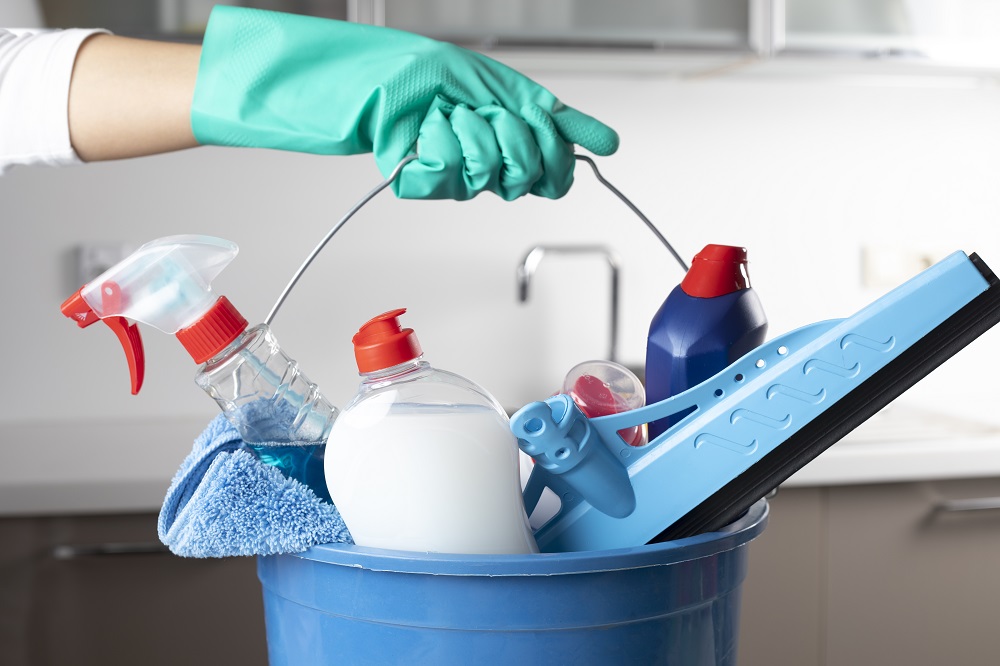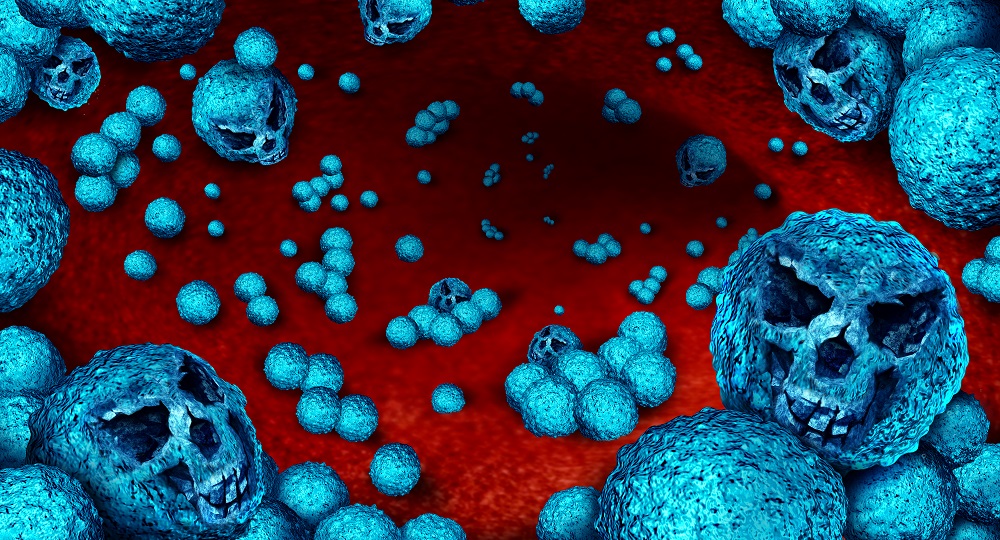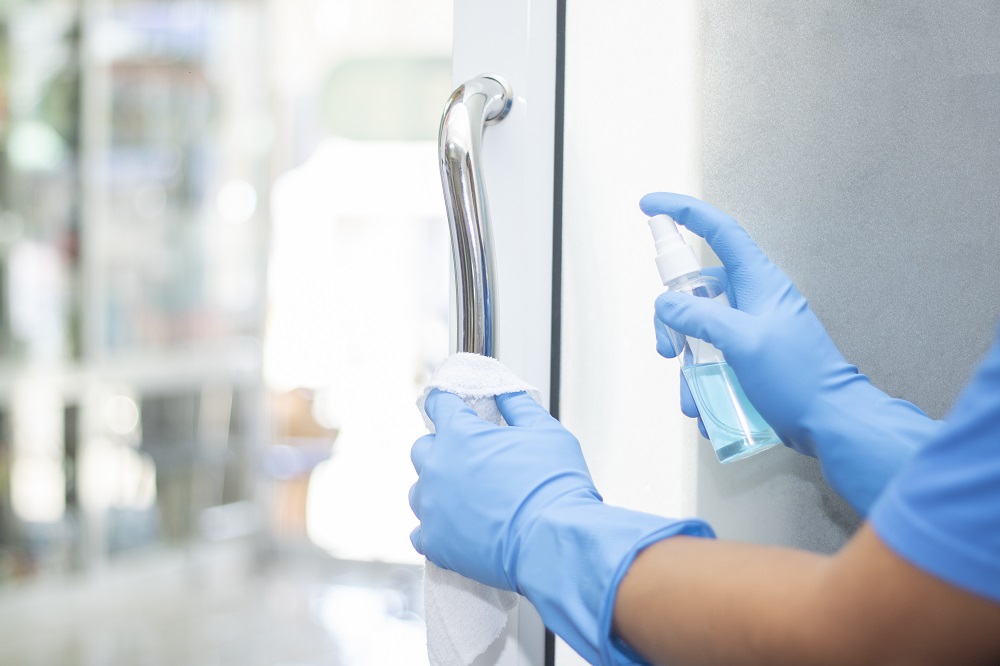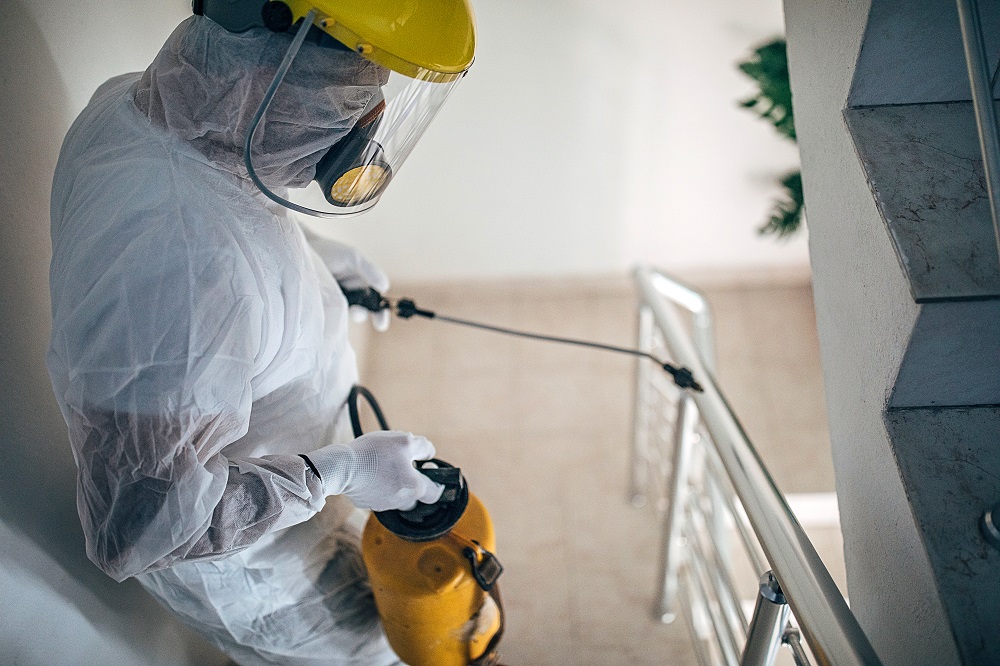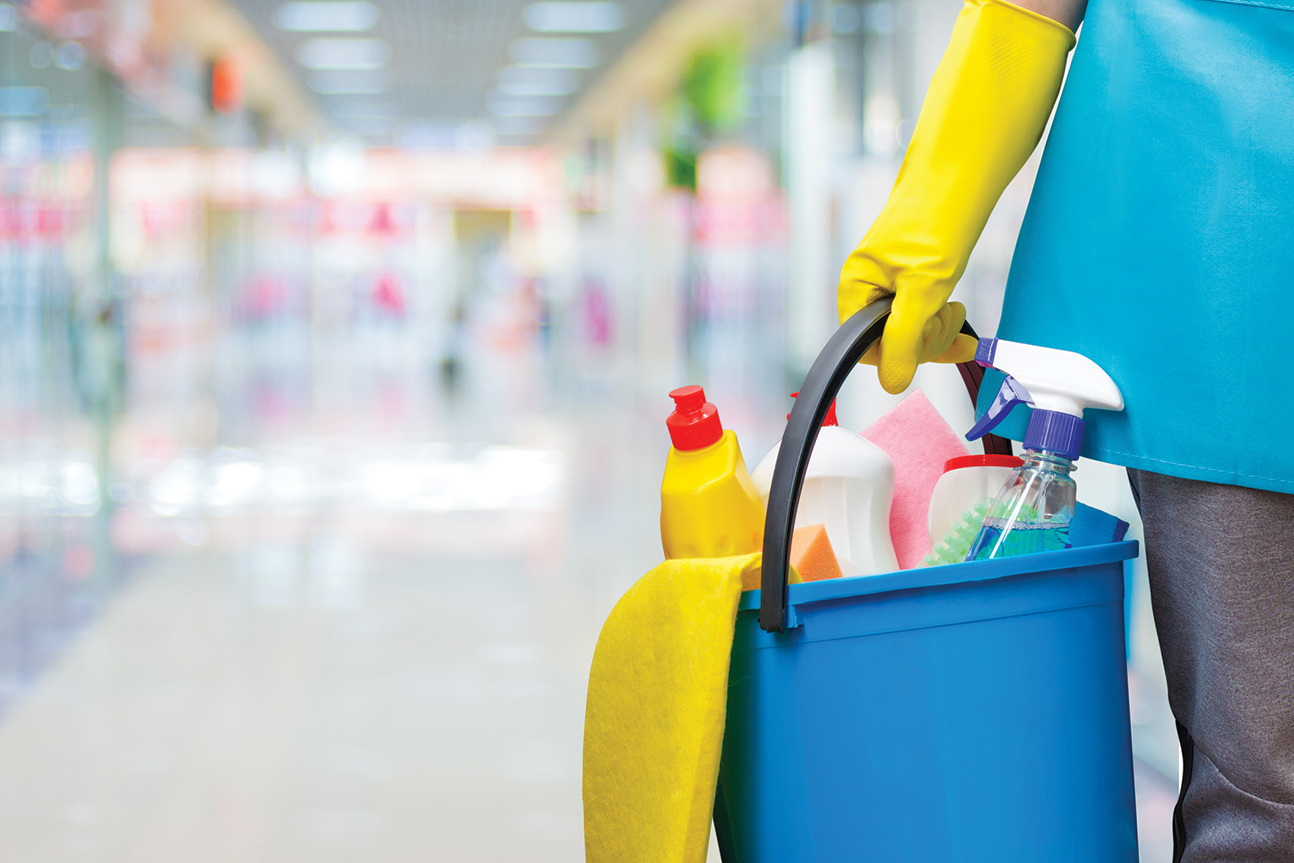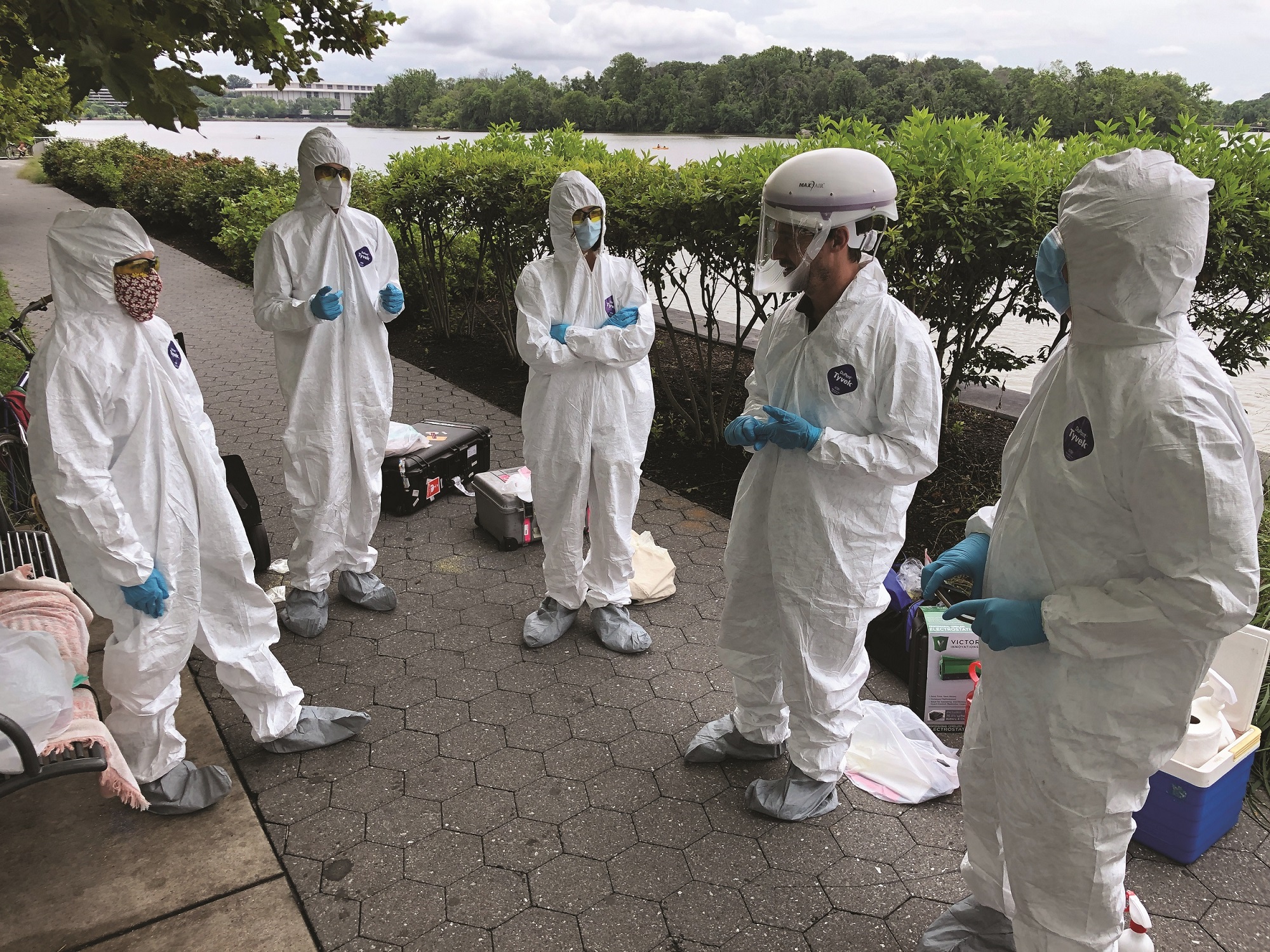
The Global Biorisk Advisory Council (GBAC), a division of ISSA, the worldwide cleaning industry, helps you prepare for, respond to, and recover from biorisk situations.
To help us understand GBAC better, ISSA Media editors met with Patricia Olinger, the executive director of GBAC, and Dr. Gavin Macgregor-Skinner, the director of GBAC, and asked them to answer some questions that are being asked by the global cleaning industry.
Who are behind the Global Biorisk Advisory Council (GBAC)?
We are a group of passionate people who realised it takes a team to help anyone – be it an organisation or a business of any size – be prepared for, respond to, and recover from biological threats, biohazard situations, and real-time crises.
We offer education, training, certification, response management, and crisis consulting for situations involving biological hazards and infectious diseases, where environments require a much higher level of cleaning, disinfection, and restoration.
Why is the GBAC team mission so important?
Increases in population growth and mobility have enhanced infectious disease transmission and intensified the difficulty of interrupting disease spread. Control of viral disease spread requires a clear understanding of how viruses are transmitted in the environment.
For centuries, it was assumed that infectious diseases were spread primarily by the airborne route or through direct patient contact, and the surrounding environment played little or no role in disease transmission.
Until 1987, the Centers for Disease Control and Prevention (CDC) and the American Hospital Association focused on patient diagnosis due to the belief that hospital-acquired infections were not related to microbial contamination of surfaces.
Over the years, studies have changed the perspective on viral transmission. Viruses are the most common cause of infectious disease acquired indoors.
The rapid spread of viral disease in crowded indoor establishments, including schools, day care facilities, nursing homes, business offices, and hospitals, consistently facilitates disease infection, illness, and death.
Yet, fundamental knowledge concerning the role of surfaces and objects in viral disease transmission, let alone all microbial disease transmission, is lacking, and further investigation is needed.
How is GBAC helping to make buildings safe from infectious diseases like COVID-19?
We understand that infectious diseases involve actual loss and threat of significant harm to innocent communities where people get sick, lose income, and suffer emotionally.
Our team works with your team to prioritise a high quality of work and a compassionate recovery approach to ensure a comprehensive cleaning, disinfection, and infection prevention process by helping you:
- Prepare: We will help you prepare and provide your staff with education and training for infectious disease prevention and containment.
- Respond: We provide your staff with education and training to understand how to conduct risk assessments and contain, monitor, and eradicate infectious disease agents to protect a facility’s customers, visitors, employees, and the community at large.
- Recover: Our team will help develop and implement a recovery plan to get your facility reopened confidently and safely, with particular attention paid to preventing future crises.
How does GBAC help?
Supporting the cleaning industry is our highest priority. We’re here to help fill gaps on knowledge and training. Right now, we are doing this through our three programs:
- GBAC STAR Facility Accreditation: It means that your facility staff has established and are implementing and maintaining the industry’s highest standards for cleaning and disinfection of infectious disease agents and are empowered to do their jobs safely and effectively.
- GBAC STAR Service Accreditation: Ensures there are highly informed cleaning professionals trained for combating infectious diseases using appropriate cleaning protocols, disinfection techniques, and work practices.
- GBAC Academy: Education, training, and certification for professionals, from front-line workers to managers, directors, and executives, to implement infection and contamination control measures for infectious disease outbreaks such as COVID-19, flu, norovirus, hepatitis, rhinovirus, adenovirus, astrovirus, rotavirus, etc.
How will GBAC STARTM affect the industry post-COVID-19?
GBAC is a qualified network of experts and partners who are prepared to respond to any event involving an infectious disease crisis. The council is composed of international leaders in the fields of:
- Pandemic and infectious disease outbreaks
- Biorisk management
- Biosafety and biosecurity
- Crime and trauma scenes
- Hoarding conditions and unsanitary dwellings
- Unattended deaths
- Bioterrorism and the deliberate release of bacteria, viruses, insects, fungi, or toxins that can kill or disable people, animals, and crops
- Mass casualty incidents (MCI) that include active shooter situations, terrorist acts, explosions, natural disasters, vehicle accidents, and mass transit mishaps (planes, trains, ships, buses).
In 2021, what is the primary goal for GBAC?
We like to refer to this as a BHAG, or “big hairy audacious goal.” Google it – this is a real term.
Our aim in 2021 is to offer the entire cleaning industry resources to ensure buildings are clean and safe from infectious diseases.
The GBAC team will achieve this by empowering essential front-line cleaning staff, building partnerships with businesses that provide cleaning, disinfection, and restoration services to residential and commercial markets, and leveraging the resources for education and training from manufacturers of cleaning products and cleaning equipment.
Infection prevention through cleaning and disinfection is a requirement now and will remain critical in ensuring our buildings are healthy and safe for all. GBAC can help you do just that, now and into the future.
For more information on GBAC, and GBAC programs, visit gbac.issa.com.
This article first appeared in ISSA Today and has been republished with permission. INCLEAN is published by the Intermedia Group on behalf of ISSA
Comment below to have your say on this story.
If you have a news story or tip-off, get in touch at info@3.106.117.80.
Sign up to INCLEAN’s newsletter.
